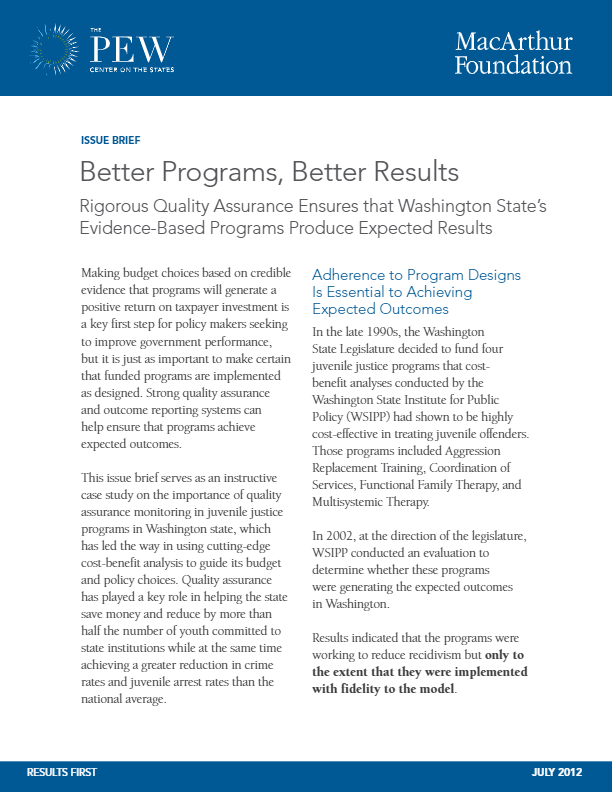Making budget choices based on credible evidence that programs will generate a positive return on taxpayer investment is a key first step for policy makers seeking to improve government performance, but it is just as important to make certain that funded programs are implemented as designed. Strong quality assurance and outcome reporting systems can help ensure that programs achieve expected outcomes.
This issue brief serves as an instructive case study on the importance of quality assurance monitoring in juvenile justice programs in Washington state, which has led the way in using cutting-edge cost-benefit analysis to guide its budget and policy choices. Quality assurance has played a key role in helping the state save money and reduce by more than half the number of youth committed to state institutions while at the same time achieving a greater reduction in crime rates and juvenile arrest rates than the national average.
The Results First initiative, a project supported by The Pew Charitable Trusts and the John D. and Catherine T. MacArthur Foundation, authored this publication.
Key Information
Source
Results First™
Publication DateJuly 26, 2012
Read Time1 min
ComponentImplementation Oversight
Resource TypeWritten Briefs
Results First Resources
Evidence-Based Policymaking Resource Center
Share This Page
LET’S STAY IN TOUCH
Join the Evidence-to-Impact Mailing List
Keep up to date with the latest resources, events, and news from the EIC.




